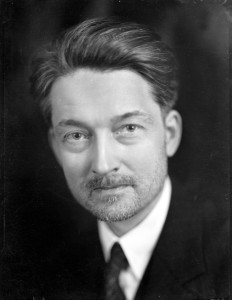
I became aware of the attacks in Paris and Beirut as I took Twitter breaks from reading Samuel Moyn’s Christian Human Rights (for a fine review read John McGreevy in Commonweal), so I am responding to these events against the background of reading about Jacques Maritain’s efforts to figure out the political implications of Christian discipleship in the 20th century.
The personalist political philosophy of which Maritain became the leading proponent attaches, as Moyn summarizes it, “supreme ethical significance to human beings agonizingly caught between individualist atomism without community and ‘totalitarian’ statehood without freedom.” “I have come to believe that if the world should triumph over the errors and evils oppressing it to-day and should contrive to establish the rule of a civilization, new and more consonant with human dignity,” writes Maritain in 1939 (against anti-Semitism), then “solutions at once pluralist and personalist … would have to prevail generally in such a régime.”
Jacques Maritain became not only an advocate for democracy in a Europe recovering from the atrocities of fascism but an architect of that democracy as it continued to be faced with a great adversary, communism. His influence stretched further: Maritain became one of the architects of a global political order explicitly committed to the “supreme ethical significance” of the human person – for him never the atomistic individual of modern liberalism, but always the person as bearer of the image of God within the context of the array of communities in which we discover the meaning of our lives.
But Maritain arrived at his deep insights into how Christian faith grounds both citizenship in democracies and human rights in international relations only after a long journey which saw him, in the years after his conversion to Catholicism, starting out as a supporter of an almost fascist approach to political life. Many in the conservative Catholic circles in which Maritain started his journey dreamed of a France in which citizenship would be limited to Catholics and denied to Protestants, atheists, and Jews. Persuaded like many others in Europe during the first half of the twentieth century that modern liberalism was metaphysically mistaken and morally corrupt and that democracy was doomed, conservative French Catholics dreamed of a return to an autocratic France in which all of life was once again under the sway of a Catholic Christendom.
Maritain’s efforts to figure out the relationship between his faith and his political life involved a slow, honest, and arduous journey. It was a journey that demanded serious study of the Christian scriptures and of centuries of Christian theology and philosophy and serious attention to the political realities of his day. The journey did not result in Maritain loosening himself from his commitments and convictions as a Catholic Christian, but rather involved a hard-won deepened practice and understanding of those commitments and convictions.
“Simply treating Isis as a form of ‘terrorism’ or ‘violent extremism’ masks the menace,” writes Scott Atran in The Guardian. “Merely dismissing it as ‘nihilistic’ reflects a willful and dangerous avoidance of trying to comprehend, and deal with, its profoundly alluring moral mission to change and save the world. … Current counter-radicalization approaches lack the mainly positive, empowering appeal and sweep of Isis’s story of the world; and the personalized and intimate approach to individuals across the world. The first step to combating Isis is to understand it. We have yet to do so.”
After Paris America needs Muslims who are willing to go on a journey similar to that of Jacques Maritain. These Muslims will remain motivated by the “positive, empowering appeal and sweep of [the] story of the world” told by Islam. America needs Muslim opinion leaders who will remain committed to Islam’s “profoundly alluring moral mission to change and save the world.” Yet these opinion leaders must be willing to do the slow, hard, subtle work necessary to discover how that story and that mission, instead of winning recruits for the murderous Islamic State, can equip Muslims to become fellow builders of a revitalized American democracy and a strengthened and emboldened global political order that attaches “supreme ethical significance to human beings agonizingly caught between individualist atomism without community and ‘totalitarian’ statehood without freedom.”
It behooves Christian political thinkers like myself (my own Calvinist tradition has as often as not coddled its own dreams of religious-political dominion in the here-and-now) to support Muslims on this difficult journey, to engage Muslims in serious and respectful dialogue, to offer robust challenge, and to be open to robust challenges about the ways in which our deepest loves and fondest hopes equip us for life in democracies alongside fellow citizens who do not share those loves or those hopes. As a Christian, I cannot leave my Christian faith inside the house when I step out into the public square. The why and the how of my political life have everything to do with my Christian commitments and convictions. Surely no less should be expected of – or allowed to – Muslims in a pluralist democracy?
(Next week I will write about the America Muslims need now.)
Photo Credit:





